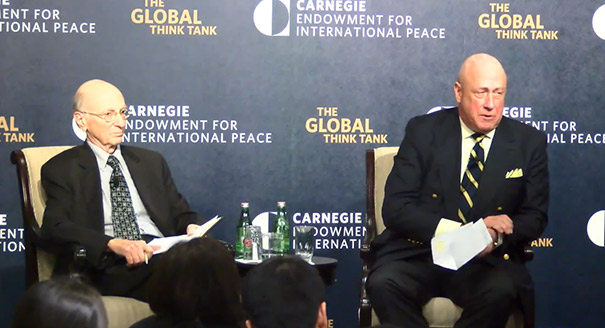{
"authors": [
"Alan D. Romberg",
"Douglas H. Paal"
],
"type": "event",
"centerAffiliationAll": "dc",
"centers": [
"Carnegie Endowment for International Peace"
],
"collections": [],
"englishNewsletterAll": "asia",
"nonEnglishNewsletterAll": "",
"primaryCenter": "Carnegie Endowment for International Peace",
"programAffiliation": "AP",
"programs": [
"Asia"
],
"projects": [],
"regions": [
"North America",
"United States",
"East Asia",
"China",
"Taiwan"
],
"topics": [
"Political Reform",
"Democracy",
"Security",
"Military",
"Foreign Policy"
]
}
Dissecting Taiwan’s 2016 Election Results
Mon, February 8th, 2016
Washington, DC
The domestic implications of Taiwan’s legislative and presidential elections will be important for the region, as China’s slowing economy and Taiwan’s growing resistance to mainland influence continue to play out. Relations across the Taiwan Strait will be subject to reformulation after seven-plus years of calm, pragmatic interaction on the basis of the 1992 Consensus, which Taipei has defined as “one China, with respective interpretations.” The reformulation will be the subject of intense jockeying within Taiwan, and between Taiwan and the mainland, with uncertain implications not only for future cross-strait relations but also for U.S. interests and the American role in the U.S.-PRC-Taiwan triangular relationship. Alan D. Romberg and Douglas H. Paal explored these implications in a post-election review.
Alan D. Romberg
Alan D. Romberg is distinguished fellow and the director of the East Asia program at the Stimson Center. He previously was the principal deputy director of the U.S. State Department’s Policy Planning staff, principal deputy assistant secretary of state for public affairs and deputy spokesman of the department.
Douglas H. Paal
Douglas H. Paal is vice president for studies at the Carnegie Endowment for International Peace. He previously served as vice chairman of JPMorgan Chase International and as unofficial U.S. representative to Taiwan as director of the American Institute in Taiwan.
Carnegie does not take institutional positions on public policy issues; the views represented herein are those of the author(s) and do not necessarily reflect the views of Carnegie, its staff, or its trustees.
Event Speakers
Alan D. Romberg
Alan Romberg is a distinguished fellow and the director of the East Asia program at Stimson. Before joining Stimson in September 2000, he enjoyed a distinguished career working on Asian issues including 27 years in the State Department, with over 20 years as a U.S. Foreign Service Officer.
